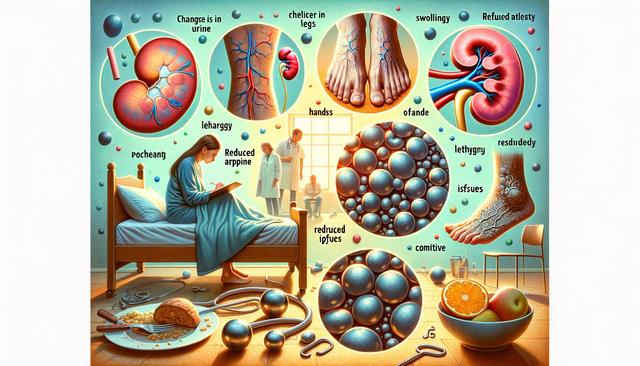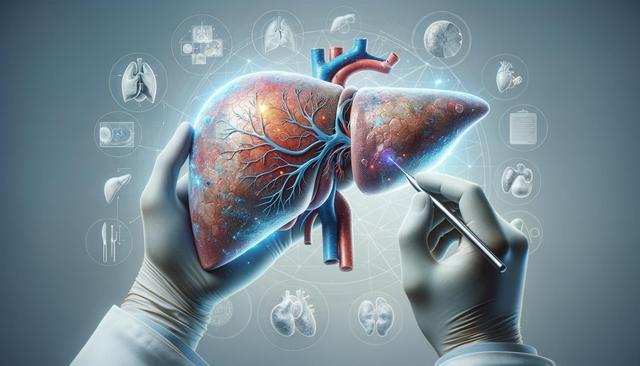Understanding the Role of the Kidneys
The kidneys are vital organs that filter waste and excess fluids from the blood, regulate blood pressure, balance electrolytes, and support red blood cell production. When kidney function declines, these processes are disrupted, potentially leading to a range of health complications. Kidney disease can be chronic and progressive, often going unnoticed until it reaches an advanced stage. Understanding the signs and how the kidneys function can help individuals seek timely medical advice and prevent further damage.
Each kidney contains millions of tiny filtering units called nephrons. When nephrons are damaged, they lose the ability to filter waste properly. Over time, this can lead to a build-up of toxins in the body, which may cause symptoms that are often mistaken for other conditions. This is why early detection is crucial. Routine check-ups, especially for those with risk factors like diabetes, high blood pressure, or a family history of kidney disease, can help catch problems early.
Common Physical Symptoms to Watch For
Kidney disease may not present obvious symptoms in its early stages, but as the condition progresses, several physical signs may become noticeable. These can include:
- Fatigue or decreased energy levels
- Swelling in the ankles, feet, or hands due to fluid retention
- Changes in urination patterns (such as frequency, color, or presence of blood)
- Persistent itching or dry skin
- Shortness of breath, especially with exertion
These symptoms result from the kidneys’ inability to maintain proper fluid and waste balance in the body. For instance, fluid buildup in the lungs may cause breathing difficulties, while waste accumulation can lead to skin irritation or general malaise. If any of these signs persist, it’s important to consult a healthcare provider for further evaluation.
Changes in Urinary Function
Urinary changes are among the earliest and most telling signs of kidney dysfunction. Because the kidneys are directly involved in urine production, any change in this function may indicate an issue. Some noticeable changes include:
- Increased or decreased frequency of urination
- Foamy or bubbly urine, which may suggest protein leakage
- Dark or discolored urine, sometimes containing blood
- Experiencing pain or pressure while urinating
These symptoms can arise from infections, inflammation, or damage to the kidney’s filtering structures. While not all changes in urination point to kidney disease, persistent issues should be checked by a medical professional. Early testing can reveal important markers like protein levels or creatinine, which indicate kidney performance.
Systemic Effects of Kidney Disease
Beyond localized symptoms, kidney disease can affect various systems throughout the body. As kidney function drops, waste products and fluids accumulate, which can lead to systemic complications such as:
- High blood pressure that becomes difficult to control
- Muscle cramps or twitches due to electrolyte imbalances
- Metallic taste in the mouth or ammonia-like breath odor
- Nausea, vomiting, or loss of appetite
These symptoms reflect the kidneys’ impaired ability to regulate internal balance. For instance, reduced kidney function can affect calcium and phosphorus levels, leading to bone weakness or cardiovascular issues. Recognizing these systemic signs helps individuals better understand the broad impact of kidney disease and reinforces the importance of regular health monitoring, especially for those with other chronic conditions.
When to Seek Medical Attention
Because kidney disease often advances without clear symptoms, early detection and regular screening are vital. People with known risk factors—such as diabetes, high blood pressure, heart disease, or a family history of kidney issues—should take particular care.
Seek medical attention if you experience:
- Persistent fatigue or weakness
- Notable changes in urine output or appearance
- Swelling in extremities or around the eyes
- Unexplained shortness of breath or chest discomfort
A healthcare provider may conduct blood and urine tests to evaluate kidney function. These tests check for levels of creatinine, urea, and the glomerular filtration rate (GFR), which is a key indicator of how well the kidneys are filtering. Diagnosing kidney disease early allows for lifestyle adjustments and medical interventions that may slow progression and improve quality of life.
Conclusion: Staying Informed and Proactive
Recognizing the early signs of kidney disease is essential for maintaining long-term health. Because symptoms can be subtle or overlap with other conditions, awareness and regular screenings play a crucial role. Individuals with higher risk should be especially mindful of changes in their body and seek timely evaluation when symptoms arise. By staying informed and proactive, it’s possible to manage kidney health more effectively and potentially prevent serious complications in the future.




Leave a Reply